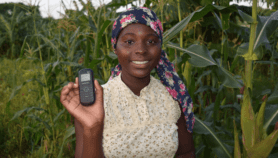By: Sue Coe
Send to a friend
The details you provide on this page will not be used to send unsolicited email, and will not be sold to a 3rd party. See privacy policy.
An Indian technology firm, BarrierBreak, is adapting Western-designed technology that magnifies and reads aloud documents to assist visually impaired people, it was reported.
A Microsoft India spokeswoman said in the article that anti-discrimination laws are a key reason why disability-accessible products are available in developed countries. But this fact increasingly applies to developing countries too.
The key factor driving this change is Article 9 of the UN Convention on the Rights of Persons with Disabilities, adopted in 2006. It states that all governments that have ratified the convention will "take appropriate measures to ensure to persons with disabilities access, on an equal basis with others … [to] information and communications, including information and communications technologies and systems".
Furthermore, governments should "promote access for persons with disabilities to new information and communications technologies and systems, including the Internet … and promote the design, development, production and distribution of accessible information and communications technologies and systems at an early stage, so that these technologies and systems become accessible at minimum cost". [1]
So far, 132 countries have ratified the convention — approximately two-thirds of which are developing nations. Thus anti-discrimination issues are now applicable to numerous developing countries.
“The main reason often cited for a lack of implementation is inadequate resource allocation. But this is generally linked to insufficient political will.”
Sue Coe
Many of these are working to embed the convention's articles into national legislation and policies. In 2011, Sierra Leone became an African pioneer when its government passed the Persons with Disability Act. This outlines specific rights for full access by disabled people to the same services and information, including education, health and employment, as non-disabled people. The Cambodian government passed the Disability Bill in 2009, in anticipation of it ratifying the convention, which it did last year.
However, the next challenge is to implement this raft of ratifications and anti-discrimination laws effectively. The main reason often cited for a lack of implementation is inadequate resource allocation. But this is generally linked to insufficient political will.
Huge energy and effort have been exerted by civil society in particular to get convention ratifications and follow-on national laws onto the statute books. Disability movements around the world have often been behind the push towards ratification — and umbrella bodies such as the International Disability Alliance have helped coordinate and document their progress.
Disability movements are continuing to mobilise in many countries to lobby their governments on this — the process of complying with the convention offers opportunities to continue to press governments to move beyond legal commitments to action.
But the lack of locally adapted technology also hinders implementation, as shown by the BarrierBreak example: although the screen-reader technology includes 30 languages, none of them are native to India.
As new technologies come to market, they will increasingly need to ensure their full compliance with local disability accessibility laws.
 Sue Coe has worked in international development for 25 years across Africa, Asia, Europe and the Middle East. Now a development and disability inclusion consultant, she previously worked for World Vision, Practical Action (formerly ITDG), VSO and Action on Hearing Loss (formerly RNID). Coe can be contacted at [email protected].
Sue Coe has worked in international development for 25 years across Africa, Asia, Europe and the Middle East. Now a development and disability inclusion consultant, she previously worked for World Vision, Practical Action (formerly ITDG), VSO and Action on Hearing Loss (formerly RNID). Coe can be contacted at [email protected].
References
[1] UN Convention on the Rights of Persons with Disabilities (UN, 2006)














